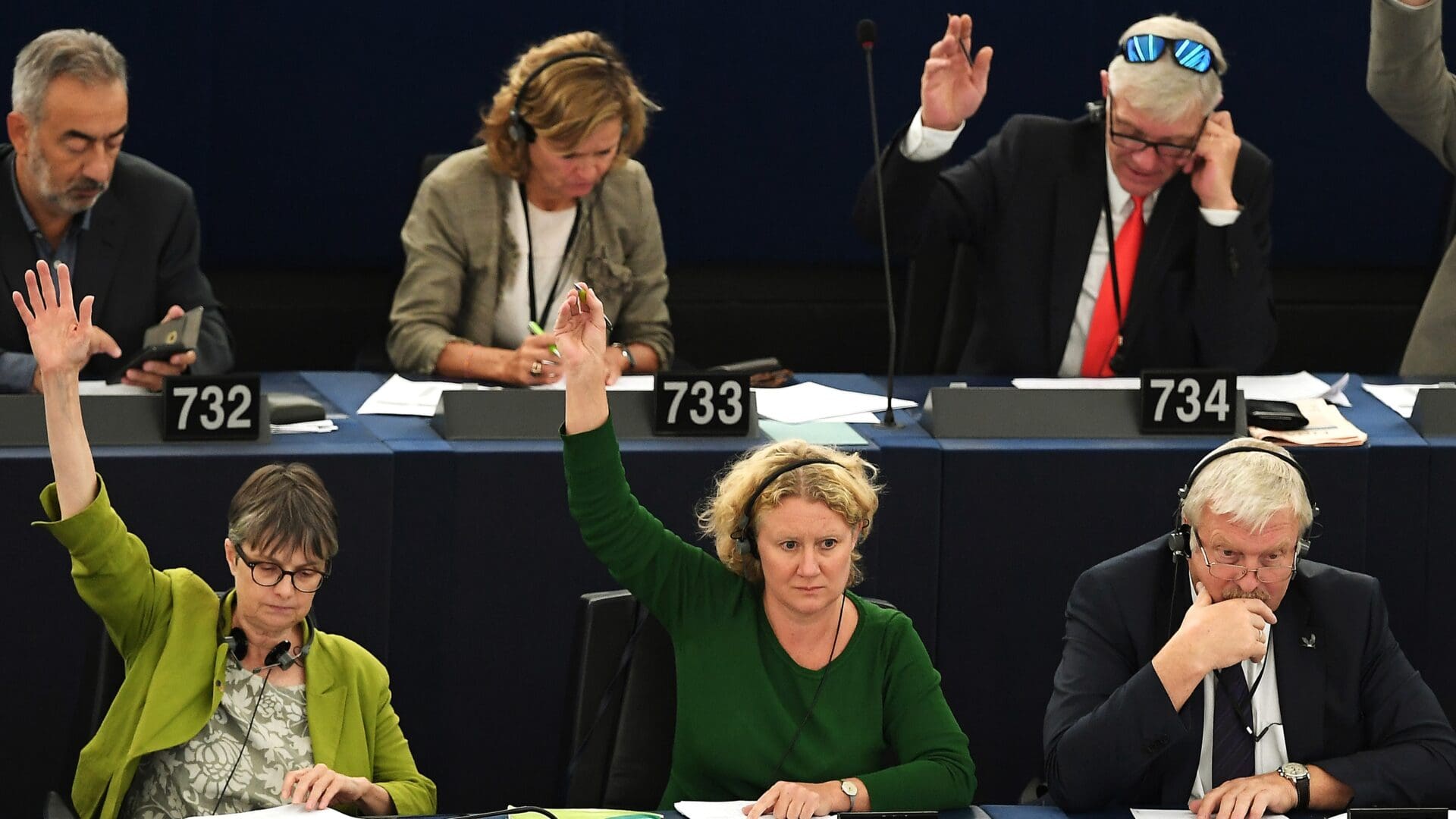With less than a year until the municipal and European Parliament elections, members of the European Parliament claiming to be concerned about the situation in Hungary are moving into high gear. Not that outside the campaign period the European Parliament is kind to our country, and Hungarians have become accustomed to the constant but recently despite the fact that we have become accustomed to constant whipping; but now even those who closely follow European politics have noticed that the EP is approaching every issue related to Hungary with unprecedented intensity. This, of course, is hardly surprising, as the European Parliament regularly adopts statements and resolutions criticising Hungary. This has become everyday practice especially after the 2019 European Parliament elections.
EU Presidency Also Planned to Be Taken Away from Hungary
We reached the latest stage in the European Parliament’s Hungary bashing at the beginning of June, when five of the seven political groups in the European Parliament submitted a resolution to the EP calling on the European Council to strip Hungary of its EU presidency. In the vote on the resolution, 442 members voted in favour, 144 against and 33 abstained. It is particularly piquant that Hungarian left-wing MEPs also voted for the resolution.
Hungary will take over as EU president in the second half of 2024, a period that coincides with the new MEPs being sworn in and electing the new Commission after the EP elections. According to the European Parliament, Hungary may not be able to credibly fulfil the tasks of the Presidency of the Council of the European Union, as in their view the Hungarian government is making deliberate and systematic efforts to undermine the values represented by integration. The draft was guided by the findings of the Committee on Budgetary Control that visited Budapest in May.
The text reiterates that the state of democracy in Hungary raises a number of concerns, including lack of transparency, mismanagement of EU funds, manipulated public procurements, fraud, corruption and conflicts of interest. Of course, there are no specific cases, investigations or evidence included in the report, only generalisations and platitudes that have been heard so many times in the media.
However, it is no coincidence that Parliament has come up with the idea now.
The timing is clear: the left-wing majority of the EP fears that the balance of power in the Parliament will fundamentally change after next year’s elections.
It is quite possible that next year we will see a European Parliament with a right-wing majority, as left-wing parties in power are barely able to keep their heads above water in Western Europe, due to inflation and soaring energy prices, which could easily lead to voters punishing the mainstream parties dominating the EP and placing their trust in conservative-right-wing formations.
And if this happens and a right-wing majority European Parliament is set up, it would naturally also determine the composition of the European Commission. This would be the worst nightmare of the left-liberal forces dominating in the EU today, because in contrast to a federal Europe, with a European Commission supporting a union built on nation-state foundations, the ideal of an ever closer union would be likely off the table.
European Parliament Has No Say in Who Holds the Council Presidency
The presidency of the Council is governed by Article 16 of the Treaty on the European Union, which stipulates that the presidency is to be held by rotation, and under Article 236 of the Treaty on the Functioning of the EU, the Council decides by qualified majority. The rotating presidency of the Council of the EU will be held by the Member States until a predetermined date, 2030 to be precise, in a specific order.
With the current procedure the European Parliament is once again overreaching its authority, as
under the treaties it has no legal basis to have a say in who holds the EU presidency.
Of course, this has been disregarded lately, as EU institutions have been operating on pure power politics. This practice has led to the fact that, although the EP has no legal basis to interfere in the procedure, it has been putting pressure on the College of Commissioners for years.
Each six-month-long presidency concludes with ordinary European Council meetings in June and December each year. The country holding the rotating presidency has a significant influence on shaping the Union’s activities in several respects, mainly by setting the political agenda. At the same time, it is the traditional duty of the country holding the presidency to put his national interests on the back burner during debates, play a mediating role and help reach a compromise.
The country holding the presidency is always at the centre of attention for the six months of its mandate. While the tasks of the presidency are mainly technical and organisational in nature, and have been reduced to some extent since the adoption of the Treaty of Lisbon, such a six-month period still represents a major opportunity for the Member State concerned to demonstrate its own capabilities.
Hungarian EU Presidency Could Offer Alternatives to Failed Policies
And it is obviously unacceptable for prominent Members of the European Parliament that Hungary could dictate the pace in the EU, and that issues considered important by the Hungarian government might determine the EU agenda. The priorities of the Hungarian Presidency include important points such as improving competitiveness, tackling demographic challenges, advancing the EU enlargement process, combating illegal migration and strengthening defence policy at EU level.
Putting these priorities at the forefront would provide enormous publicity for the political course pursued by the Hungarian government, not to mention that its pragmatic policies seeking answers to people’s everyday problems and fears
could provide an alternative to the unearthly ideas of the EU mainstream.
Therefore, the European Parliament is trying to do everything in its power to politicise and ideologise the disagreements between the EU institutions and the Hungarian government. The MEPs attacking Hungary seem to be forgetting what the role assigned to them in the treaties is, and instead of fulfilling their role of EU co-legislators, they pretend that they are sitting on the opposition benches of the Hungarian parliament.
All of the above do not bode well. It seems that the political attacks we have seen so far are only the beginning, and as the European Parliament elections approach, the MEPs hostile to Hungary will be putting even more pressure on the Orbán government.







